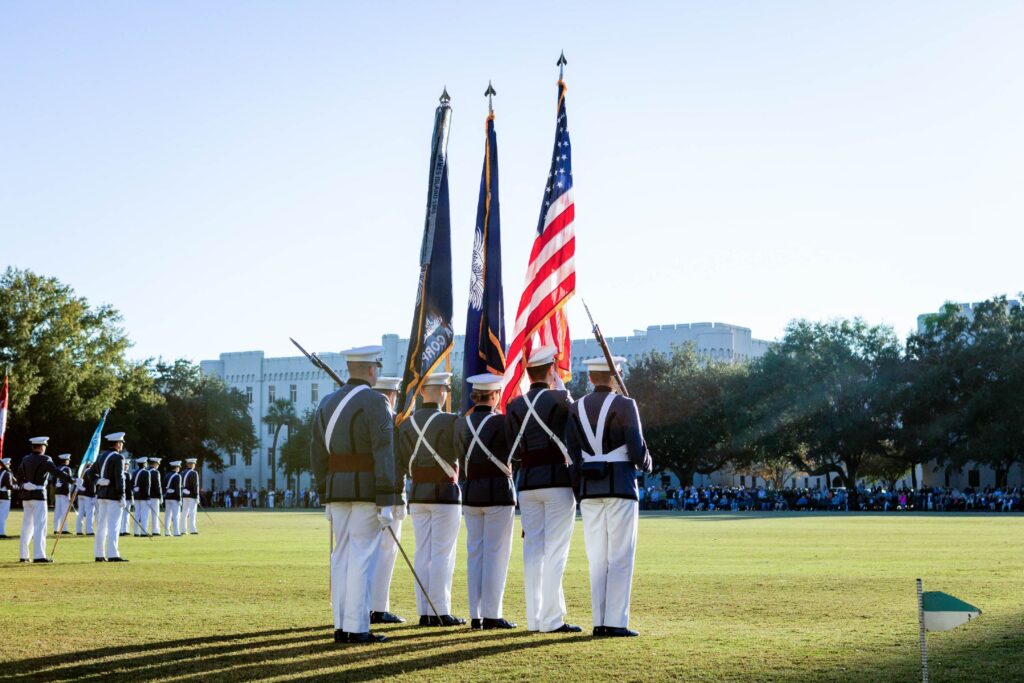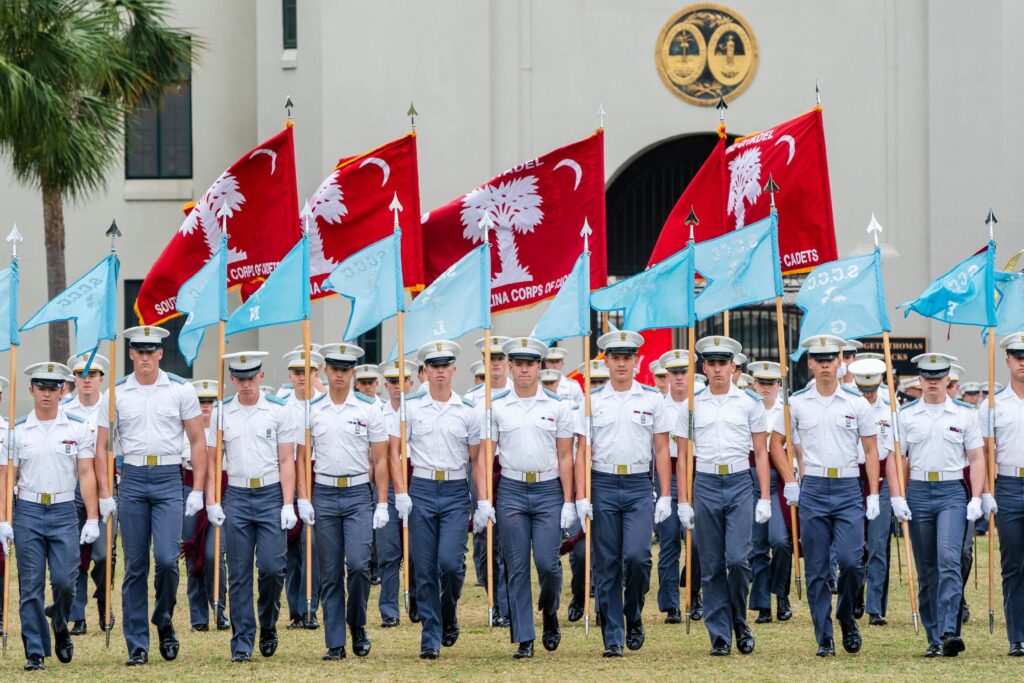The Citadel’s Cadet Leadership Development Framework
The Cadet Leader Development Program at The Citadel emphasizes development and environment, two key concepts within its mission. Development enables individuals to respond effectively to various situations and integrate diverse experiences. The environment, including classroom and beyond, provides the context for this growth through challenges and support.
The Theory of Challenge and Support
The theory of challenge and support states that growth requires a balance of challenges and support in the environment. Without this balance, development stalls. For growth, each cadet must face appropriate challenges and receive adequate support through various experiences.
All cadets at The Citadel face common challenges, including academic demands, adherence to regulations, rigorous physical training, the fourth-class system and various military duties. Cadets choose additional challenges based on their interests and abilities, such as serving in the chain of command, participating in clubs, sports, studying abroad, engaging in research, community service and pursuing an ROTC contract. Cadets should also expect to encounter unique and unpredictable life challenges.

Leadership Training Support
As cadets navigate these challenges, they will have a foundation of consistent support through TAC (Teach, Advise, and Coach) officers, professors, academic advisors, coaches, club advisors, mentors, campus ministers and student affairs professionals. This support infrastructure is not only at the disposal of each individual cadet, but also actively and intentionally engaged in their leadership development.
The TAC helps the cadet develop a “pathway to success” with short- and long-term goals and objectives. The TAC then connects the cadets to the support resources that are best suited to help achieve their goals. As the cadets develop, the TACs receive continuous feedback from their own observations and from other support infrastructure members. The TAC regularly reviews progress with the cadet based on these observations, and the two adjust the plan as necessary. Every member of the support infrastructure makes a unique and valuable contribution to the cadet’s leadership development
Leadership Training Stages
Students engage in a leadership curriculum while taking on roles and responsibilities in the SCCC. The Citadel identifies four overlapping stages corresponding to class years: freshmen prepare, sophomores engage, juniors serve, and seniors lead.
Prepare: Freshmen prepare by learning to operate under stress and stretching their self-awareness, character, and perseverance. They develop personal discipline, time management, and teamwork, and internalize the core values of honor, duty and respect, enhancing their capabilities as principled leaders.
Engage: Sophomores make the transition from followership to leadership as they learn direct leadership skills and manage administrative and logistical duties without intermediary leaders. They actively engage in SCCC leadership roles under close supervision.
Serve: Juniors serve by applying their learned skills and characteristics, taking full responsibility for those under their care. As team leaders, they organize, motivate and hold team members accountable for actions and results. As they prove themselves, more experienced leaders entrust them with greater responsibilities and less supervision.
Lead: Seniors consolidate their leadership experiences to achieve complex organizational goals by organizing and influencing other leaders and utilizing climate-setting, policy-making and systems integration. As The Citadel fulfills its mission of developing principled leaders, seniors focus on preparing for future leadership roles in their careers.
In each stage, cadets participate in a combination of academics, training, and experiential learning that exposes them to the art and science, the theory and practical application, the extrinsic and intrinsic and the learning and doing aspects of leadership.
Leadership Curriculum
Leadership development training is incorporated into academics through required courses called LTP classes. LTP classes include Citadel Training Model (CTM), General Leader Development (LD), Character (CH), Hands-On (HO) and Career Services
Each course assesses cadet learning through quizzes, question & answer sessions or small group responses to scenarios.

Explore More on Leadership



